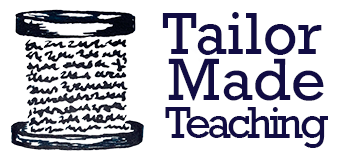Knowing and knowing
Two kinds of knowing:
‘Knowing’ as in a cognitive, intellectual knowledge.
And
‘Knowing’ as in ‘knowing in your bones’, ‘lived experience’ perhaps, or realization.
Adrian Underhill offers a neurological term: ‘proprioception’ to contrast with cognitive knowing in pronunciation. Proprioception is a perception and awareness of the position and movement of the body. This kind of knowing we can only learn from physical practice. And it is this kind of knowing which will release a learner from the habits of the L1.
Knowing and not knowing
In the CELTA, many years ago, we were taught to respond to students’ awkward questions with ‘I’m not sure, I’ll find out and get back to you.’ A response which more or less saved me on countless occasions in my first years of teaching.
After my DELTA and MA, my response more often changed to something like, ‘This is quite a complicated area, I can give you a longer explanation at some point but right now I’d think we should concentrate on…’ or just, ‘That’s a big question.’
What I love about Adrian Underhill’s approach to pron is the response is more like, ‘That’s a really interesting question, let’s work it out together.’ It seems to me that this response is the most confident one and the most beneficial. As a teacher you need to be secure in your proprioception to be able to locate the source of the difficulty and find the movements required to resolve it. Doing this side by side with the learner not only helps them to find the correct position but gives them a model of how to solve such issues.











Leave a Reply
Want to join the discussion?Feel free to contribute!